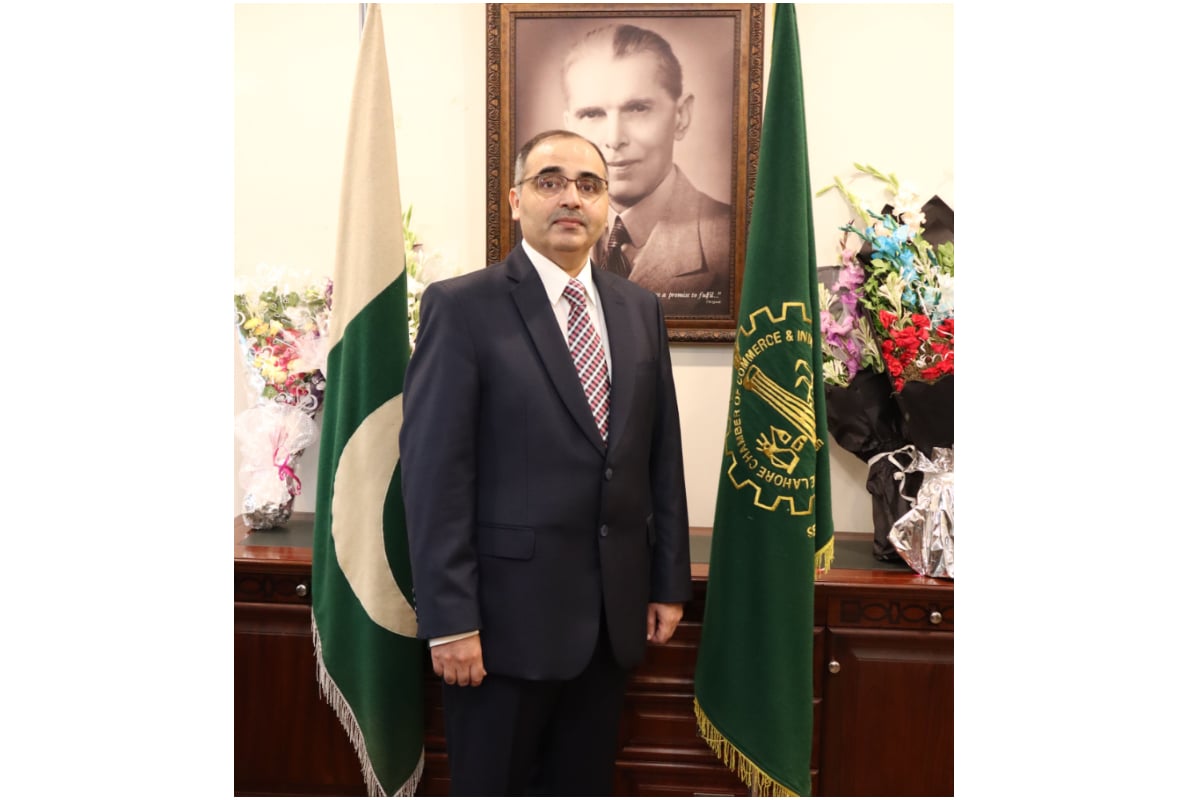
Hitting the Panic Button
LAHORE: Leadership from across the political divide should sit together and develop consensus on the economic agenda to take the country out of the prevailing crisis, said Kashif Anwar, president of the Lahore Chamber of Commerce and Industry.
“It is no time for politics, as Pakistan is facing the worst economic crisis. The ever-increasing trade deficit and fast depleting foreign exchange reserves are a matter of concern. Yes, recession is a global issue at this stage but the situation is more alarming in Pakistan due to the import-based economy,” he added.
“We rely on imports to fulfil our energy and food needs. Now we do not have enough foreign exchange reserves to fulfil our energy and food and manufacturing sector requirements, which heavily rely on imported raw materials,” he said.
A large number of industries have either shut down or reduced production and more are on the verge of closure due to the refusal of the banks to open the letters of credit (LCs), high input costs, massive rupee depreciation and the rising interest rate.
“The situation is going from bad to worse due to the prolonged political unrest. We first need to make our own house in order. Both the opposition and the ruling coalition partners should keep politics aside for the time being and sit together to reach a charter of economy in the larger national interest. The general elections in only two federating units will not help get the desired results if a charter of economy is not signed with the pledge of its implementation in letter and spirit. The people from all walks of life should boycott the elections till the signing of a charter of economy by the political leadership,” Anwar said, who is also the director of AMK Engineering (Pvt) Limited.
The LCCI chief highlighted various issues of businesses, challenges for the economy and possible measures to reduce the trade deficit. He also underlined the need for the timely completion of Diamer-Basha and Mohmand dams and the construction of more reservoirs, saying such projects were necessary not only for cheaper electricity but also to avoid floods and provide enough water for irrigation purposes.
“We have lost more than $30 billion in the recent floods. The dams will not only help minimise the flood-related damages but will also stop the wastage of precious white gold in the Arabian Sea,” he said, adding that such initiatives will also help improve the energy mix, which is presently unsustainable.
The government has been focusing on large-scale manufacturing (LSM) for decades with little or no attention to Small and Medium Enterprises and the cottage industry, he said.
“The government should give due attention to the SMEs and the cottage industry for the long-term and sustainable growth of the economy,” he said.
The SMEs and cottage industry had always been the backbone of the economies of developed countries.
Before securing a degree in Business Administration from Pak Aim, Anwar got early education from the Crescent Model School and graduated from the Government College Lahore.
He served as the LCCI vice president, president of Friends of Economic and Business Reforms (FEBR), director of the Federation of Pakistan Chambers of Commerce and Industry’s Pakistan-Iran Business Council and Pakistan Portugal Business Council and the member of FPCCI’s Regional Committee on Sales Tax and Inland Revenue.
Anwar has also served as the member of various committees such as FTO Advisory Committee, committee to furnish recommendations for the tax reforms, FBR Sales Tax Reforms Committee and the Corporate Advisory Board of the UCP Business School.
Following are excerpts of an exclusive talk with him:
Your take on the political chaos and frequent change of regimes in Pakistan?
The political unrest directly affects the economy and businesses. In such a scenario, the businesses avoid making short- and long-term investments for expansion. It also affects the foreign direct investment.
The regime change increases the likelihood of subsequent change. Every new government discards the policies of its predecessor and brings its own. As such, the policies of every government are short-term, which has hampered the long-term sustainable growth.
The people evaluate the policies of the next government before making any investment plans. A country like Pakistan cannot afford prolonged political unrest and frequent change in regimes. All the stakeholders should come forward and develop consensus on one point agenda of signing a charter of economy in the larger national interests. From now onwards, every government should complete terms and carry forward long-term plans of the predecessors.
Is external borrowing the only way to build foreign exchange reserves?
Pakistan is ready to accept every harsh condition for the revival of the International Monetary Fund (IMF) programme. We should encourage our own people through amnesty to bring foreign exchange in the national exchequer. The government should give profit to the people and promise legalisation of the undeclared assets after two to three years. Unconditional and across-the-board amnesty can bring $10 billion into circulation.
Possible measures to reduce the trade deficit?
The trade deficit is a huge challenge due to heavy reliance on imports. The major portion of our imports are crude and edible oils. We will need to import wheat and half a million cotton bales this year to fulfil our domestic needs. There is a need to draw a red-line to conserve enough land and ensure our food security and meet the requirements of our manufacturing sector.
The government should take practical measures to enhance the yield of major crops such as wheat and cotton, identify areas and encourage sowing of palm oil, sunflower and other oilseeds to save the precious foreign exchange.
Import substitution through local production, product diversification, value addition and exploring new export destinations are necessary to reduce the trade deficit. There is a need to take long-term measures such as building dams to generate cheap electricity and ensure availability of water for irrigation purposes.
Your take on unprecedented rupee depreciation?
It has multiplied the miseries of the country heavily relying on imports to fulfil the energy and food requirements and getting raw materials for the manufacturing sector.
We listened to the claims of taking the dollar exchange rate to Rs200. We should take every possible measure to strengthen the local currency against the greenback. For me, it should be around Rs175 for sustainable economic growth in the country.
Impact of increase in the electricity tariff and fuel prices on businesses?
The increase in the electricity tariff and fuel prices have considerably enhanced the cost of doing business. Many industries have shut down and more are heading towards closure due to high input costs. There is a need to take immediate measures to reduce the input costs for the manufacturing sector.
The government is purchasing electricity from the independent power producers (IPPs) at a high tariff of Rs50/unit. At the same time, it has penalised persons who have installed solar panels at their own costs. The decrease in the rate from Rs20 to Rs10 clearly shows that the government is not ready to purchase electricity from individuals.
There is a need to encourage the citizens to install solar panels and provide electricity to the national grid through net metering. It will help reduce the spending on the import of fossil fuel for electricity generation.
As a long-term strategy, the government should construct dams to increase water storage capacity and generate low-cost and environment-friendly electricity.
How inflation has affected businesses?
Inflation has badly affected all the businesses across the world. The situation is more difficult in Pakistan due to heavy reliance on imports.
Unprecedented inflation has made the lives of the common man miserable. Reduced buying power of the end-consumers has ultimately affected the businesses.
What was the impact of the interest rate hike on businesses?
An increase in the markup rate has enhanced the borrowing costs of the enterprises. Many industries have closed down and more are near closure due to the lack of capital.
The State Bank of Pakistan (SBP) should revise the interest rate and bring it at par with the regional countries such as India, China, Sri Lanka and Bangladesh. There is a need to improve access of small businesses to credit.
Your take on the future outlook of the overall business environment in Pakistan?
The global recession will persist this year, which will badly affect all sectors in the country. The government should take measures to reduce the input costs, control inflation, revise markup rates, ensure stability of the exchange rate and decrease the number of withholding taxes.
The machinery imports should be allowed for the SMEs to upgrade their technologies and enhance their competitiveness. Pakistan has all the resources and blessings and the only requirement is putting the house in order and moving in the right direction.
Catch all the Economic Pulse News, Breaking News Event and Latest News Updates on The BOL News
Download The BOL News App to get the Daily News Update & Live News.








 Read the complete story text.
Read the complete story text. Listen to audio of the story.
Listen to audio of the story.